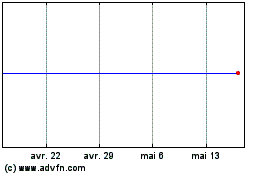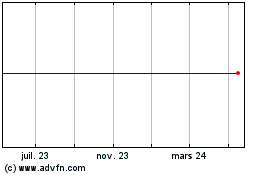By Ryan Tracy and Brent Kendall
U.S. antitrust laws date back more than 130 years and affect
every part of the economy. Democrats and Republicans are now
considering the most significant changes in decades. Here's what
you need to know about what might be coming:
What is antitrust law?
Antitrust laws are designed to protect and promote competition,
guided by the principle that consumers are better off when
companies battle for their business by offering better services and
prices.
The laws date to the 1890 Sherman Antitrust Act, when powerful
monopolies (then known as "trusts") in industries such as oil and
railroads exercised huge influence over American trade. These laws
bar price-fixing, market-rigging, monopolistic practices and
mergers that pose a substantial threat to competition.
Why does Congress want to update the laws now?
Both political parties have been galvanized by concern that the
nation's giant tech companies -- including Alphabet Inc.'s Google,
Amazon.com Inc., Apple Inc. and Facebook Inc. -- hold unchecked
power over the economy and American society, and don't have any
true rivals in the sectors they dominate.
Are Democrats and Republicans in agreement?
To a degree, but they have different perspectives.
Democrats say the tech giants are a symptom of a broader
disease, pointing to studies showing many U.S. industries have
grown more concentrated. With fewer competitors, they say, big
companies are tilting the scales in favor of the rich and powerful
by, for example, paying their workers less or shutting off a path
to startups that could offer better products.
Republicans generally aren't convinced concentration is a
problem in and of itself, pointing out that operating at a large
scale can allow big companies to cut prices. But they do worry
about it in some industries. In social media, many in the GOP say,
a lack of competition for Facebook, Google's YouTube and Twitter
Inc. empowers those platforms to treat conservatives unfairly. (The
companies deny political bias.) Republicans also see increased
antitrust enforcement as a better approach than direct government
regulation of the marketplace.
What changes are they considering?
Some of the proposals are relatively modest, including bigger
budgets and new civil penalty power for antitrust enforcers at the
Federal Trade Commission and the Justice Department.
Lawmakers have also proposed changes to legal standards to make
it easier for enforcers to halt proposed mergers and business
practices that threaten competition. And some have called for
moving some of the FTC's enforcement authority into the Justice
Department, rather than having the agencies share power.
There is also a bipartisan proposal to allow local news outlets
to join to negotiate with dominant platforms such as Google and
Facebook.
What are some of the tougher proposals?
Some lawmakers are calling for measures that would force
technology companies to break apart widely used digital platforms
from other business lines. This could force Amazon to separate its
online marketplace, or Google to split off its search engine. Both
companies operate many other businesses.
Existing lawsuits by the FTC, Justice Department and states
could result in similar consequences for Google, and could force
Facebook to shed its Instagram and WhatsApp units, but those
remedies are years away at a minimum.
I've read about something called self-preferencing. What is
that?
That is a practice in which companies such as Amazon and Google
use proprietary platforms to promote their own products and
services over those offered by competitors.
While Republicans generally aren't in favor of breaking up big
companies, a handful of GOP lawmakers say they are so concerned
about the conduct of big tech platforms that they would be open to
restricting self-preferencing.
That could mean a mandatory separation of certain business
lines, such as Amazon dividing its e-marketplace from Amazon-made
retail products or Google splitting its search engine from maps or
travel.
Are the tech companies fighting back?
Yes. The tech giants and other big businesses are poised to
fight many of the measures, which they see as threats to their
bottom lines. Facebook and Amazon spent more on lobbying in 2020
than any other U.S. corporations, seeking to influence legislation
on antitrust and other matters. The tech giants say that they face
vigorous competition forcing them to constantly innovate, and that
they have acquired large market shares because consumers love their
products -- arguments that they are now making in court.
Supporters of existing antitrust law say the current rules are
sufficiently flexible for addressing the challenges presented by
evolving technologies and other developments in the modern
marketplace. They also say the current approach strikes a fair
balance between policing markets and giving companies significant
room to maneuver in the rough-and-tumble business world.
So what might happen?
Members of both parties support larger enforcement budgets and
the news-industry proposal. In concept, both sides agree there
might be a need for so-called interoperability and data portability
rules to create more competition in the tech sector. These would
allow consumers to move more easily between competing online
platforms by, for instance, posting on multiple social-media sites
at once or moving their shopping histories from one marketplace to
another.
Some Republicans have also said they would join Democrats in
supporting changes to legal standards -- especially if they are
targeted at the tech sector. In addition to self-preferencing, one
potential area for compromise between the parties is a proposal to
raise the legal burden for mergers by companies with 50% or greater
market share.
Republicans would support a consolidation of enforcement
agencies, but Democrats don't appear interested.
What would the changes mean?
Even if Congress acts on only a couple of middle-of-the-road
proposals, it could mark the biggest substantive changes in
decades, as courts have been reading current antitrust laws more
narrowly. Very large companies could have trouble getting deals
approved. Tech giants could have to divest themselves of certain
business lines.
If lawmakers, for example, make slight changes to reinforce
broad government authority to successfully challenge mergers that
threaten consumers, "that would signal to the courts that merger
enforcement is important and that doubts should not always be
resolved in favor of defendants," said Wayne State University law
professor Stephen Calkins.
Write to Ryan Tracy at ryan.tracy@wsj.com and Brent Kendall at
brent.kendall@wsj.com
(END) Dow Jones Newswires
March 12, 2021 08:14 ET (13:14 GMT)
Copyright (c) 2021 Dow Jones & Company, Inc.
Twitter (NYSE:TWTR)
Graphique Historique de l'Action
De Juin 2024 à Juil 2024

Twitter (NYSE:TWTR)
Graphique Historique de l'Action
De Juil 2023 à Juil 2024
